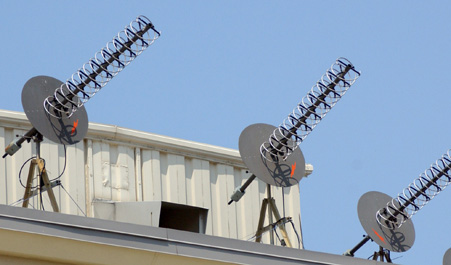Intelligence agencies face a skeptical public as they carry out a vital mission.
 Greg Mathieson/Landov
Greg Mathieson/Landov
On Oct. 23, 2009, Glenn Gaffney, the senior U.S. official responsible for collecting intelligence at the Office of the Director of National Intelligence, joined Utah Gov. Gary Herbert at a news conference in Salt Lake City. Together, they announced the construction of a new intelligence data center at Camp Williams, a National Guard site south of the capital.
The center has an important mission--providing foreign intelligence about cyber threats, as well as support to military networks and the Homeland Security Department, which is in charge of securing civilian agencies' networks. The National Security Agency will be the executive agent for the new site, which Herbert called a "godsend" in troubled economic times. Construction is estimated to cost $1.5 billion, and the center could employ up to 5,000 people throughout the state. "This is a win-win. This is good for the federal government; this is really good for Utah," he said.
But some Utah citizens aren't convinced. They recall that not so long ago, NSA was secretly sucking up the phone calls and e-mails of people in the United States who were believed to be in contact with terrorist suspects abroad. Now the agency plans to use the same kinds of surveillance tools to patrol the Internet for hackers and foreign cyber warriors.
"In a quest for safety from potential unemployment and economic hardship, principles (and liberty) are thrown to the wind," Connor Boyack, a Web developer and blogger in Lehi, Utah, wrote in an op-ed for the Salt Lake Tribune. Boyack tossed NSA in with some ugly company. "Would Utahns praise an industrial meth lab, prostitution ring or child labor camp simply because they created jobs? Surely not."
Comments on his blog reflected a broad mistrust of the intelligence community. "Our government must end the Bush administration's
de facto suspension of the Constitution," wrote one commenter, echoing the fact that the Obama administration has embraced its predecessor's surveillance policies. Boyack noted, "The existence of such facilities infringes (potentially and realistically) on the civil rights of all Americans. So while I don't want it in my backyard, I likewise don't want it anywhere."
To be sure, Boyack's vehement opposition probably attracted similarly outraged citizens to post comments. And there were some supportive remarks on the blog and on the newspaper's Web site. But the theme of the opposition remained consistent, and pointed up a fundamental dilemma NSA and all agencies with a role in the crucial mission of cybersecurity face.
Technology has given the government extraordinary power to collect information, analyze it and share it. But the law governs mostly the acquisition of personal data, not what agencies actually do with it. This is why some Utah residents, and many Americans, are so concerned. They know that somehow the government can grab their e-mails and phone calls. What they don't really know is what agencies do with that information in those big data centers.
The answer isn't encouraging. While government has spent billions of dollars on systems to process vast amounts of data, agencies like NSA are not very good at anticipating threats and protecting Americans' privacy. That is no easy task. But the government hasn't made a strong and concerted effort to accomplish it. Until NSA and all intelligence agencies demonstrate they are committed to balancing the equation, and with more than just public reassurances, the long shadow of privacy will hang over everything they do.
Shane Harris' first book, The Watchers: The Rise of America's Surveillance State , will be published in February by The Penguin Press. He is a correspondent for National Journal.





